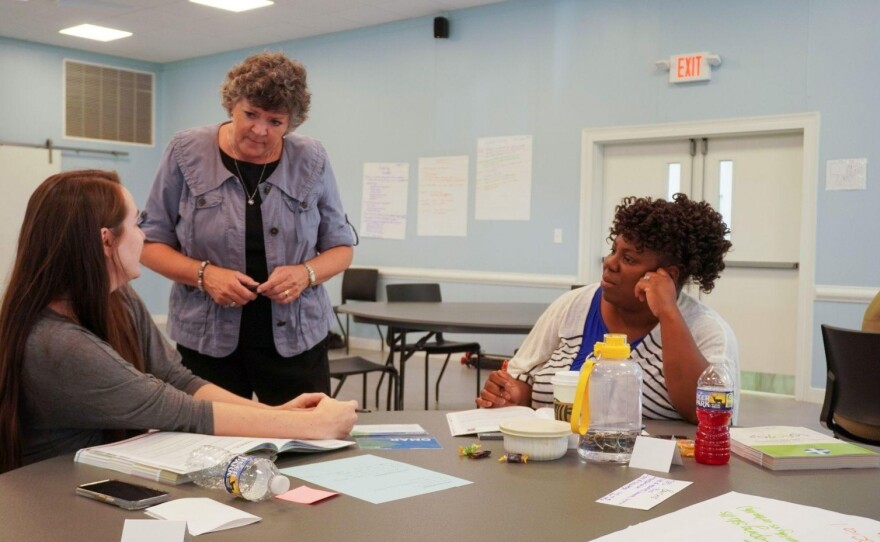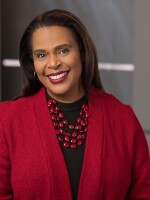Content warning: Be advised that this story contains sensitive subject matter about suicide and self-harm that may be difficult for some.
Mental health issues are a growing concern for young people. A CDC report found more than one in six youths said in 2019 that they’d made a suicide plan within the past year.
But there is good news. There are evidence-based training workshops – that help adults identify signs of distress in youth and deal with them proactively. One such program is the youth mental health first aid course offered by the Virginia Home For Boys And Girls, and it’s free.
VIDEO TRANSCRIPT
KAREN RICE (Mental Health Trainer): How do you know when you're being listened to? And how do you know when somebody's checked out? Listening sounds easy, but it's not, you know, when someone's listening to, you know, when they're not, youth are very attuned to whether or not we adults are taking them seriously. And when they understand that we're taking them seriously, we're going to get a lot of information. And we're going to be able to connect and be helpful.
CLAIBORNE WARNER (CEO and President, Virginia Home for Boys and Girls): Understanding that even someone like me, I'm not a therapist, I'm not trained in mental health, per se, but I could do something to intervene, I could do something to act, I could do something that would make a difference in that person's life.
MAGGIE RZASA (Participant): Any individual can have a mental health crisis at any given time. So, the more people that are educated, the more resources we have, the more we know how to respond to those situations, I think the more we can help people around us and continue to talk about mental health.
WILMA SPRINGS-MCKEITHAN (New Canaan International Church): It shows you how to approach the kids, it shows you how to interact with them, to get them to talk to you about what's going on in their life, I cannot wait to carry it back to my church.
KAREN RICE (Mental Health Trainer): So remember being direct and non judgmental...
REGINA WASHINGTON (Chesterfield Education Foundation): I've seen an increase of students facing anxiety and just not feeling good about themselves. So, it's just given me some strategies to reach out to them.
KAREN RICE (Mental Health Trainer): Youth are exposed to things through social media, that my generation and certainly the generation ahead of me, really never had exposure to. And we've taught them to look for answers, look for entertainment, in social media, in a phone, not in interacting with other people, not in verbally communicating their needs and feelings and wants.
CAPRICIEA ANDERSON (participant): Letting people know that there are more resources out there than they may imagine that are available to them. That may not even cost the thing,
ERIN MATHEWS (participant): he makes us feel like we're already educated. And she really did plug in like those gaps and things that we thought we already knew. But she was able to plug in those gaps, which was really cool.
SANDRA JEFFERSON (Educator and Counselor): I've had training before. But this training was different, because it was practical. And it's something that I see. Or that I wish could be in schools or in churches, because it's so practical that other people can do it. You don't have to be a professional.
JONI MARSHALL (participant): I lost my son in 2014 to suicide and had no inkling that there were problems. So, I am so thankful for this today that I can see, you know, the signs that I may have missed that his friends may have missed and how to be able to deal with it in a kind of a, take a step back in a holistic view of it.
DANIELLLE FULLWOOD (Former VHBG Employee): If I had these tools early, I think I would have helped a friend of mine, but not being informed and not being trauma informed, I didn't catch the clues at the time, but now I am equipped to help somebody else.
ANGELA AURELIA COOK (participant): When people are in that place a risk for suicide or contemplating or you know, could be in that place already in an action plan is how to be direct, how to be calm, how to take the actions, how to approach them, how to get them the help they need, how to be with them during that time.
KAREN RICE (Mental Health Trainer): We want to fix it. We want to make it better. So, we start offering advice. And if you just do this, it'll be better. Or here's what I did for me and it got better. And all of those are conversation enders, not only for youth and teens but for anyone. We don't want to be compared. We want someone to hear what's important and authentic to us. At this moment. You don't have to be a therapist to be therapeutic. You can use these skills with your family, with your neighbors with strangers. We wouldn't deny anyone physical first aid and no one needs to be denied Youth Mental Health First Aid either.












